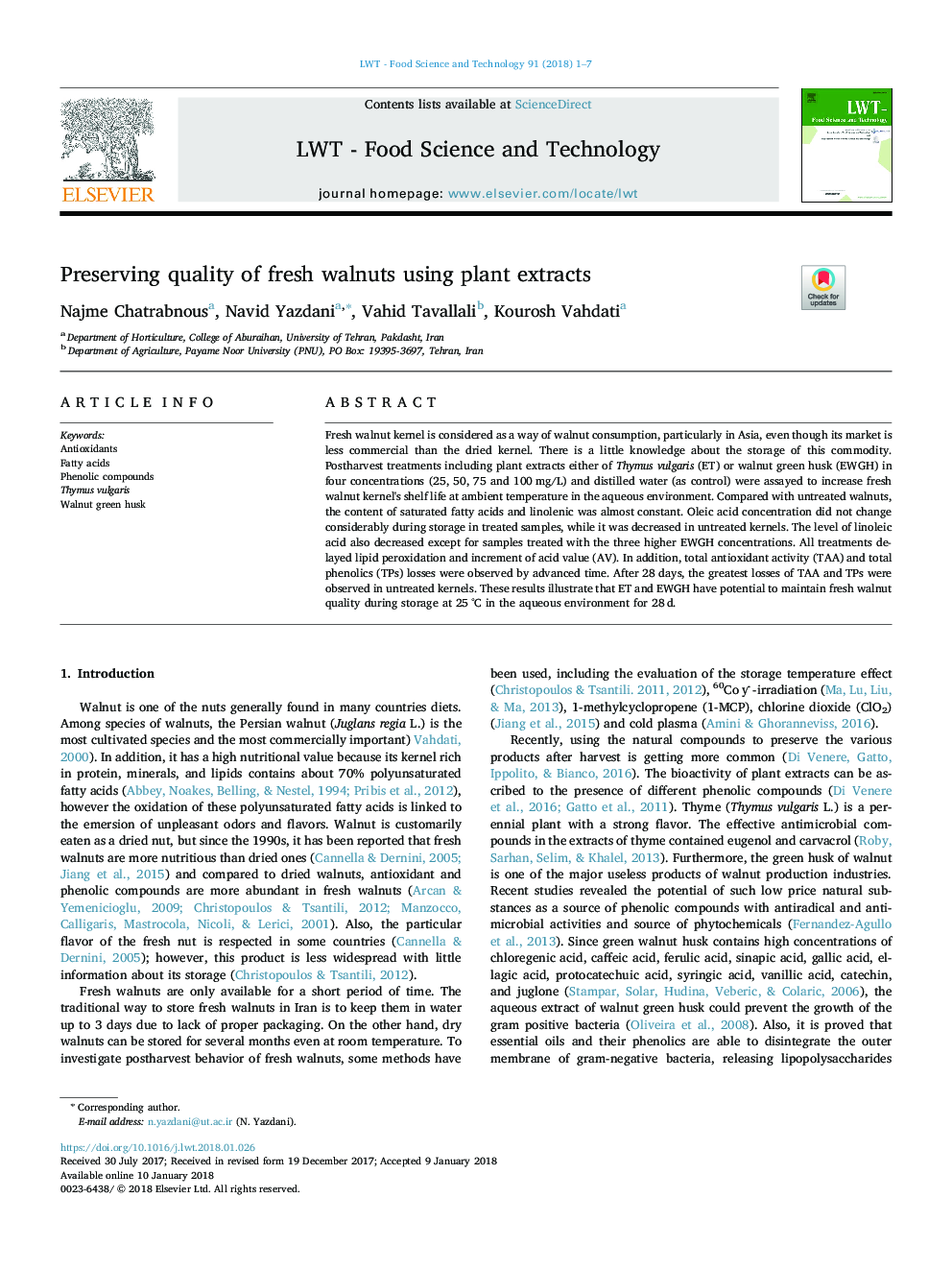| Article ID | Journal | Published Year | Pages | File Type |
|---|---|---|---|---|
| 8891328 | LWT - Food Science and Technology | 2018 | 7 Pages |
Abstract
Fresh walnut kernel is considered as a way of walnut consumption, particularly in Asia, even though its market is less commercial than the dried kernel. There is a little knowledge about the storage of this commodity. Postharvest treatments including plant extracts either of Thymus vulgaris (ET) or walnut green husk (EWGH) in four concentrations (25, 50, 75 and 100â¯mg/L) and distilled water (as control) were assayed to increase fresh walnut kernel's shelf life at ambient temperature in the aqueous environment. Compared with untreated walnuts, the content of saturated fatty acids and linolenic was almost constant. Oleic acid concentration did not change considerably during storage in treated samples, while it was decreased in untreated kernels. The level of linoleic acid also decreased except for samples treated with the three higher EWGH concentrations. All treatments delayed lipid peroxidation and increment of acid value (AV). In addition, total antioxidant activity (TAA) and total phenolics (TPs) losses were observed by advanced time. After 28 days, the greatest losses of TAA and TPs were observed in untreated kernels. These results illustrate that ET and EWGH have potential to maintain fresh walnut quality during storage at 25â¯Â°C in the aqueous environment for 28â¯d.
Related Topics
Life Sciences
Agricultural and Biological Sciences
Food Science
Authors
Najme Chatrabnous, Navid Yazdani, Vahid Tavallali, Kourosh Vahdati,
